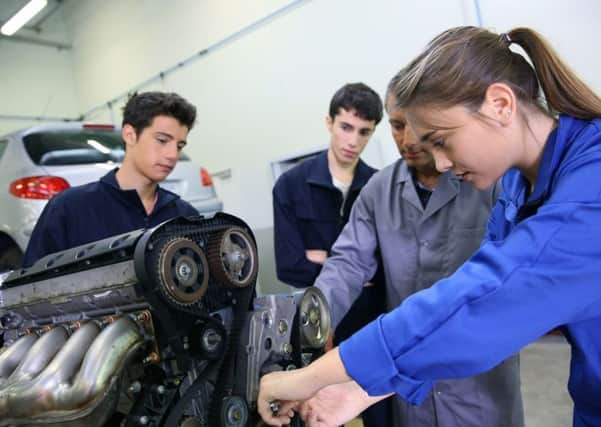Councils need hundreds of new apprentices to clawback huge pay tax


The money, plus an extra 10 per cent top-up from the Government each month, can be claimed back by employers to spend on apprenticeship training but some of the region’s biggest councils told The Yorkshire Post they face a real challenge to recruit enough apprentices in order to do so.
To fully recover a levy of £2m, North Yorkshire County Council needs to appoint 913 apprentices every year - a figure it said was “well beyond” local need and demand for apprenticeships from young people in the region.
Advertisement
Hide AdAdvertisement
Hide AdLeeds Council employs 290 apprentices but still has a huge task to hit its government-enforced target to employ more than 500 apprentices and reclaim an estimated £2.4m.


Hull Council has to double its number of apprentices, to 160, to recoup its £600,000 levy in full, while Sheffield Council said its levy was £1.4m but could not confirm how many apprentices it needs to claw back that total.
The new Apprenticeship Levy began in April in what is the biggest national shake-up of apprenticeship funding for a generation.
Public bodies with 250 or more staff also have to have apprentices accounting for at least 2.3 per cent of their workforce.
Advertisement
Hide AdAdvertisement
Hide AdJustine Brooksbank, assistant chief executive of North Yorkshire County Council, warned: “To fully recover the levy of £2m, the Council needs to appoint 913 apprentices, every year - a figure which is well beyond both service need and numbers available in the local economy. The target in effect requires around a quarter of all county council vacancies to be filled by new apprentices.”


Councillor Mohammed Rafique, Leeds Council’s executive board member for employment, enterprise and opportunity, said: “The Council’s apprenticeship cohort has been expanded from 150 to nearly 290 in the last 12 months. However, this expansion, while significant, equates to only 1.7 per cent of the Council’s head count and leaves us with more work to do.”
The levy sees the Government charge all employers 0.5 per cent of their wage bill, if their respective bill exceeds £3m a year.
The funds are then made available via a new digital account for employers to pay for training for apprentices from a recognised provider. Funds expire after two years and any left unclaimed are lost.
Advertisement
Hide AdAdvertisement
Hide AdThe Government insists the policy is an incentive for employers to offer apprenticeships and fill skills gaps in the economy. It wants to create 3m apprenticeships by 2020 and expects the levy to raise £2.5bn by 2019-20 for apprenticeships in England.